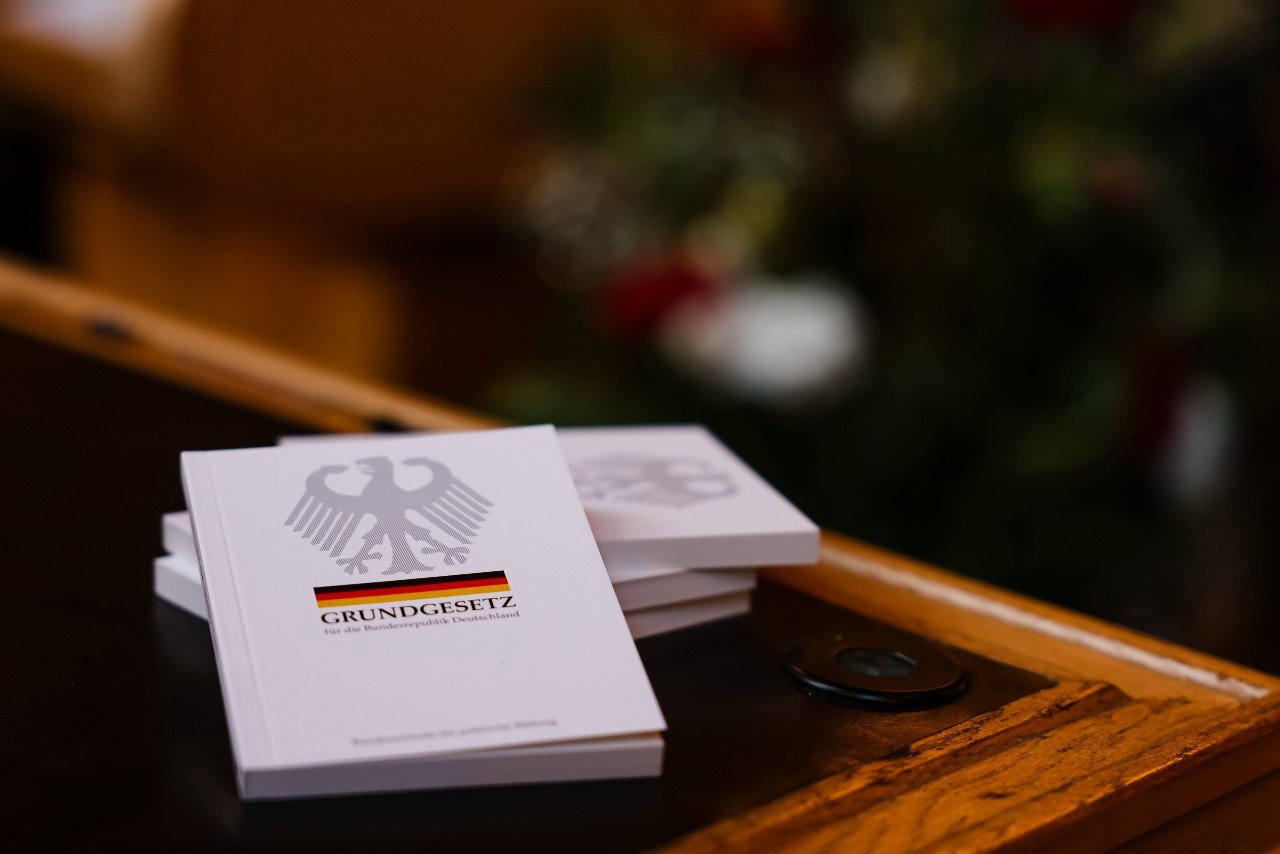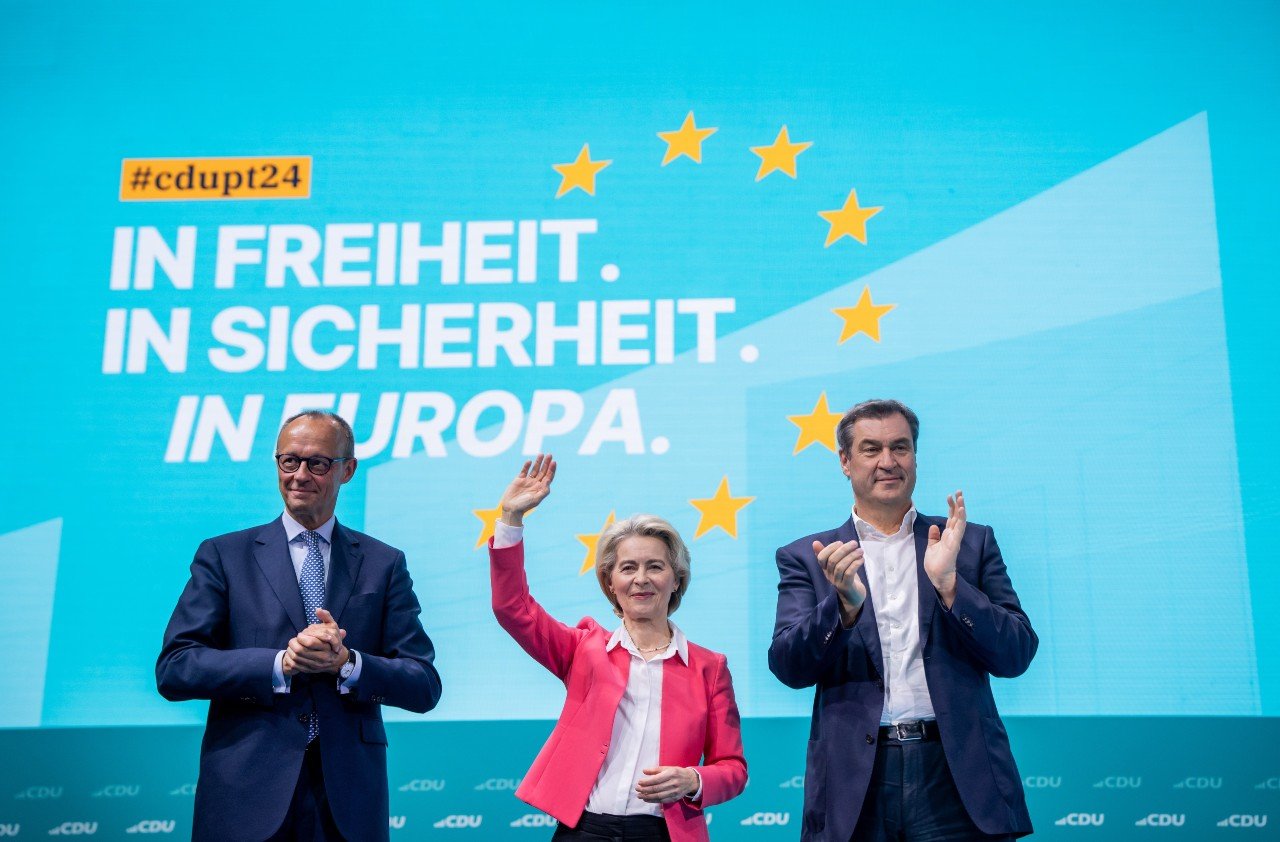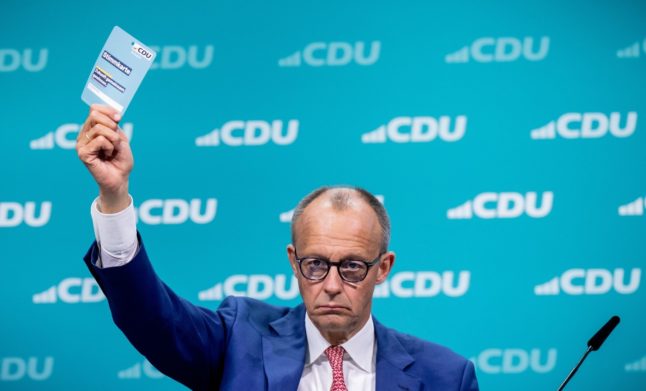It may be more than a year until the next round of federal elections in Germany, but as spring turns into summer, the political campaigning is already heating up.
In the latest polls at the end of April, the conservative Christian Democratic Union (CDU) and Christian Social Union (CSU) parties were still riding high at over 30 percent.
In the upcoming EU elections in June and federal elections next year, the conservatives are hoping to translate these poll numbers into significant wins. If the trend continues, they could once more take the reins of Europe’s largest economy, heading up the chancellory and acting as the largest governing party after a four-year hiatus.
At their party conference in Berlin this week, CDU leader Friedrich Merz said he hoped to win votes by appealing to swing voters and become “the people’s party of the centre”. But the new party programme agreed on by conference delegates has been widely seen as a lurch to the right.
The new 50-page Grundsatzprogramm, which sets out the party’s core principles, marks the first time this document has been rewritten since 2007, when Angela Merkel was Chancellor of Germany and leader of the CDU.
It’s a distinct break away from the 120-page programme set out in the Merkel years, with a strong emphasis on tough asylum rules and identity politics, as well as incentives to work longer hours and later in life.
Here are some of the key policies to know about.
Integration, religion and Leitkultur
At the centre of the Union’s new party programme is the concept of Leitkultur, or dominant culture, which stands in opposition to multiculturalism and demands that migrants accept German values and way of life.
According to the CDU, Leitkultur means “a shared awareness of home and belonging”, an “understanding of our traditions and customs” and knowledge of German culture and language, as well as a commitment to the German constitution. Immigrants should accept these things “without ifs or buts”, the programme states.

In terms of religion, the CDU believes that people of the Jewish faith belong in Germany, but only some muslims do. “Muslims who share our values are part of Germany’s religious diversity and our society,” the party writes. But: “An Islam that does not share our values and rejects our liberal society does not belong in Germany.”
Looking at Germany itself, the party believes in a “cosmopolitan patriotism” that protects the country’s rich history and traditions while acknowledging historic guilt.
Citizenship and language
In line with its emphasis on Leitkultur, the CDU wants all future applicants for German citizenship to formally acknowledge Israel’s right to existence.
Under the party’s plans, all children in Germany would face a compulsory and standardised language test at the age of four to check their ability to communicate in Germany. Children who are struggling would undergo a mandatory year of school preparation in a local Kita.
READ ALSO: Why Germany is shaking up citizenship test questions
Compulsory military service
Having originally floated the idea in very soft terms, the CDU emerged from its party conference with a new policy to bring back compulsory military services in stages.
At first, the party wants to introduce a contingent conscription where conscripts to the military are only called up as and when they are needed. This would culminate in the reintroduction of a compulsory year of service after school, in which young people would either undergo military service or volunteer in the social sector.
This would help plug deficiencies in the Bundeswehr (German army) and manage the growing threat posed by Russia, the party emphasised.
READ ALSO: Could Germany bring back military conscription?
Tax breaks for middle classes
Attempting to woo the “working middle”, the CDU has aired plans to raise the threshold for the top income tax bracket of 42 percent, which currently stands at around €63,000.
In addition, the party wants to offer tax breaks for people who take on extra hours at work. Those in full-time employment who work more than their contracted hours won’t be taxed on their overtime.
Other tax breaks would include relief on social contributions for people in lower tax brackets, and an “attractive” corporation tax to encourage economic growth.

No end to debt break
As a “promise to future generations”, the CDU says it will encourage sustainable politics that give future governments financial “room to manoeuvre”, in spite of the challenges posed by an aging population.
“This is only possible with solid finances and a clear commitment to the debt brake,” the party states. In other words, the party will continue to cap borrowing at a meagre 0.35 percent of GDP.
READ ALSO: What is Germany’s debt brake and how does it affect residents?
Return to nuclear energy
In the aftermath of the energy crisis, the CDU says it wants to ensure that the energy supply remains secure, clean and affordable – which means the return of nuclear power. “Germany can’t currently do without nuclear power plants,” the party writes.
According to the conservatives, renewable energy sources should be expanded while also using fossil fuels – with an emphasis on gas rather than coal.
When it comes to fighting climate change, the CDU is pinning its hopes on the free-market economy, using financial incentives and new technologies to attempt to steer things in the right direction.
Pensions and social welfare
The CDU says it is committed to securing pensions over the long-term by topping up contributions through capital investments – and the party also wants the system to be fair to hard workers.
“Those who have worked and paid contributions should receive more than someone who hasn’t,” the programme states.

Though there is no mention of raising the pension age, there is no mention of capping it, either, but the party seems to be counting partly on incentives to encourage people to stay in work. If employees decide to stay on at their job past pension age, they should pay less tax on their earnings.
READ ALSO: How Germany plans to stabilise pension contributions
On the welfare side, the CDU states that work should pay and those who neither work nor study should be at a distinct financial disadvantage.
Family and identity
True to its conservative and Christian roots, the new programme emphasises that marriage and family should be the core unit in German society. However, the concept of “family” has been broadened out to include same-sex marriages, single parents and so-called patchwork families.
“Family is where parents support children and children support parents in the long term,” the CDU explains.
That said, the CDU isn’t quite so liberal when it comes to gendered language and gender identity: the party is against using “forced” gender-inclusive language on public broadcasters and maintains that biological sex is an “unchangeable fact”.
READ ALSO: Why Germany still gets fired up about gender-neutral language
Rwanda-style asylum plans
In a sea change from the era of Angela Merkel, the CDU wants to significantly toughen up laws for refugees to make Germany a less attractive place for people to claim asylum.
The party’s new programme sets out plans for a scheme similar to the United Kingdom’s controversial Rwanda policy, which would see asylum seekers transported to a third country while their applications were being processed and remaining in this country if their applications were successful.
A proposal to grant recognised asylum seekers the right to stay in Germany did not receive a majority at the party conference.
However, given the fact that the UK’s Rwanda policy has been dogged by legal issues – not least the claims that it contravenes international law – it is unclear if this policy could ever be enacted.



 Please whitelist us to continue reading.
Please whitelist us to continue reading.
Member comments